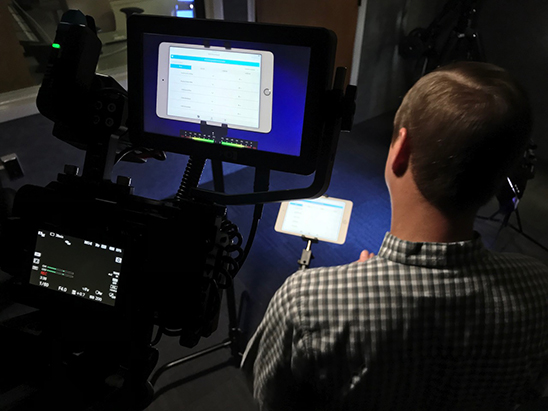Soybean Delivery App released in time for harvest
Soybean Delivery App released in time for harvest

Published on Oct. 16, 2017
The Kentucky Soybean Board partnered with the University of Kentucky College of Agriculture, Food and Environment to develop an app to help soybean producers accurately calculate and compare the price offered by elevators, with consideration to delivery costs and high-moisture penalties for harvested grain.
The app, named Best Bean Buyer, was developed by UK agricultural economist Jordan Shockley and Joe Dvorak, Sam McNeill and Ricky Mason, all in the UK Department of Biosystems and Agricultural Engineering, using checkoff dollars invested by the Kentucky Soybean Board to provide value and a competitive advantage for Kentucky’s producers.
While increased on-farm storage has decreased the amount of beans that some farmers directly deliver to the elevator, farmers face a reduction in price paid at the elevator for beans sold with high moisture content. Storing the crop to lessen the moisture content is an expensive proposition, though. Farmers have to truck the grain to their on-farm storage bins, load it into the bins, then load the grain back into trucks and haul it to the elevator. This process results in extra fuel costs and additional labor.
Not all farmers have on-farm storage, and this app may very well be the tool that helps them determine their profit margin by calculating transportation costs to various elevators. With high moisture content grain that is trucked straight to the elevator from the field, the moisture discount can make a significant difference in profit by the load and for the crop year.
This free app, available now on both the Apple and Android platforms, calculates in real-time the comparative prices that a producer can expect to receive from different elevators based on grain moisture and costs to haul it to each elevator. While the inputs affecting transportation and moisture discounts may be complex, this app helps producers eliminate the unnecessary cost of delivering to an elevator that will result in a smaller net profit.
It relies on five important features of mobile devices: mobility and availability, connectivity and real-time information, computational power, sensors and individual customization.
The mobility and availability of these devices means that the producer can use this service in the field. Internet connectivity means that the app can easily request the driving distance between a location and every elevator under consideration. This same connectivity provides the mechanism for farmers to enter current prices for each elevator. The computational power of these devices is used to evaluate the complicated equations that govern grain drying so that comparisons between different elevators are possible. The location sensors on a device are used to determine current field location if the producer is using the app in the harvested field. The app can also store information such as individual producer costs for grain transportation.
The app does require some set-up and customization to make it fully functional. Shockley developed a short YouTube tutorial to help producers get the app set up and ready to use. It may be found at https://youtu.be/2KvGAy-B5LE.
Crops Economics Extension


